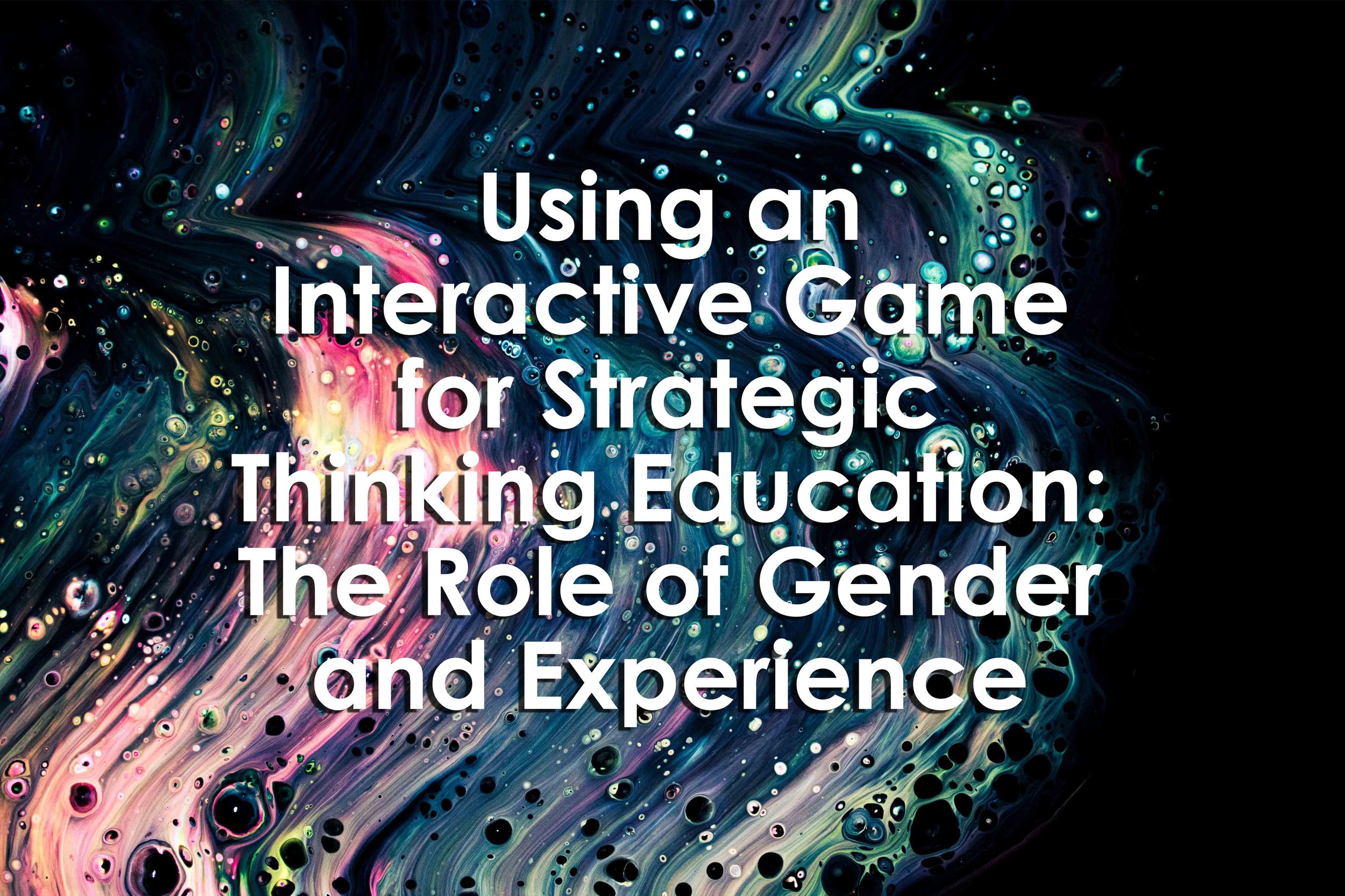Using an Interactive Game for Strategic Thinking Education: The Role of Gender and Experience
Using an Interactive Game for Strategic Thinking Education: The Role of Gender and Experience
Using an Interactive Game for Strategic Thinking Education: The Role of Gender and Experience
By Jakub Drmola and Josef Kraus
Abstract
“The primary goal of this investigation is to systematically explore the relationship among the students’ performance, grades, gender, previous experience, and impressions while using Diplomacy, a strategy game, as an educational tool. The rationale for this research is the existing and commonly expressed concern that such games unfairly disadvantage female students due to their lesser exposure to similar games. If such teaching methods are to be successfully employed, we must ensure that they are well suited, appropriate and, most importantly, fair to all our students. To explore this issue, the data collected over 6 years through a university course on strategic thinking and from anonymous student questionnaires were analyzed and tested for statistically significant correlations. The results show that, while male students are more experienced in playing similar games, had an easier time understanding the rules, and showed stronger engagement, this did not translate into considerably better performance or grades and even led to higher levels of disappointment with their own performance.”
Reference
Drmola, J., &; Kraus, J. (2022). Using an interactive game for Strategic Thinking Education: The role of gender and experience. Journal of Political Science Education, 1-10. doi:10.1080/15512169.2022.2121713 https://www.tandfonline.com/doi/abs/10.1080/15512169.2022.2121713
Keyword
Simulation, strategy, gender, performance, diplomacy, education, research

